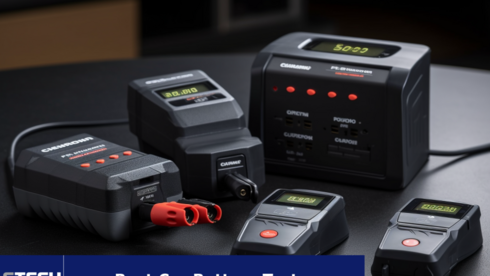
An Honest Review of the 7 Best Car Battery Testers of 2024
An Honest Review of the 7 Best Car Battery Testers of 2024
Find out which car battery tester will keep you on the road longer! Pick the best one with our comparison guide.

The reviews of the products in this article are created by a team of experts that is independent from CTech's editorial team. If you make a purchase through the links mentioned below, we may receive a commission.
Our Top Picks
Nothing puts a damper on a weekend getaway like a dead car battery, right? We’ve all experienced the sinking feeling of turning the key and hearing that dreaded click. A trusty car battery tester can be a game changer, letting you check your battery’s health before it leaves you stranded. If you're tired of unexpected car troubles and want to ensure you're always ready for the road, exploring the top car battery testers could be the answer. Let’s explore the must-have tools that keep your adventures running smoothly.
1 . Konnwei Car Battery Tester


What makes this car battery tester top our list is its user-friendly design and its ability to provide overall battery parameters, such as voltage, internal resistance, cold cranking amps, AH capacity, battery health, and charge status. Plus, it can test batteries with a 100-2000 CCA capacity, making it compatible with a wide range of vehicles, including trucks, motorcycles, SUVs, boats, and even marine applications. The digital display provides clear and easy-to-read results, allowing you to diagnose battery issues quickly. The tester also features an alternator check function, which can determine whether your alternator is charging your battery properly. This is an important feature that can save you from unexpected breakdowns and costly repairs.
Pros
Display battery result, Accurate results, Easy to use
Cons
Cords are too short

2 . Motopower Car Battery Tester
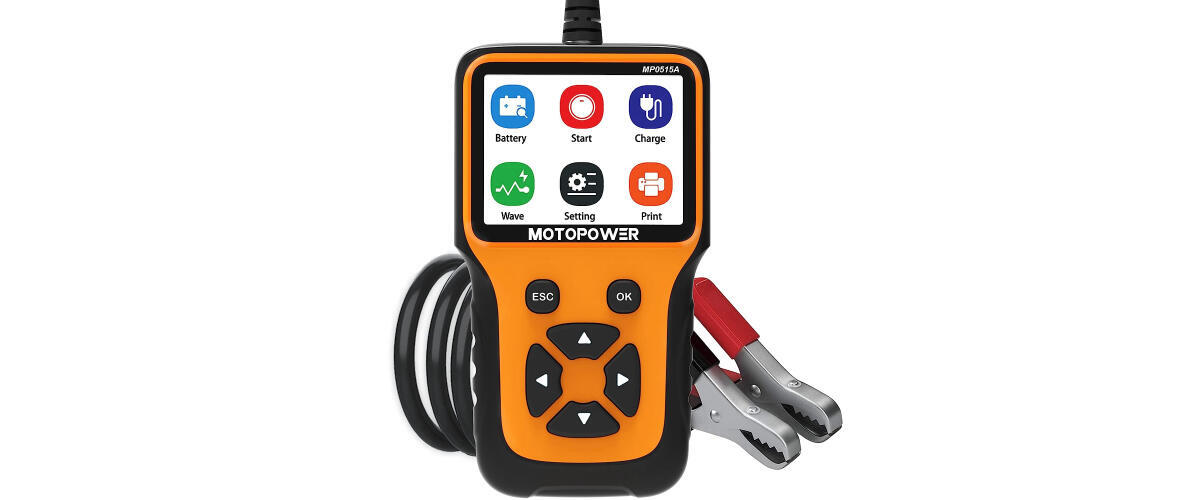

This device scans your car battery within seconds and displays clear and accurate readings on the screen, allowing you to easily diagnose any issues with your battery or alternator. Additionally, the tester is equipped with a built-in thermal printer, so you can conveniently print out test results for further analysis. The compact and portable design of this car battery tester makes it easy to take with you on the go, ensuring that you always have a reliable tool to test your car's battery and charging system.
Pros
Multi-function diagnostic tool, Accurate testing results, Easy to read display
Cons
Tricky to navigate settings

3 . Kingbolen Car Battery Tester
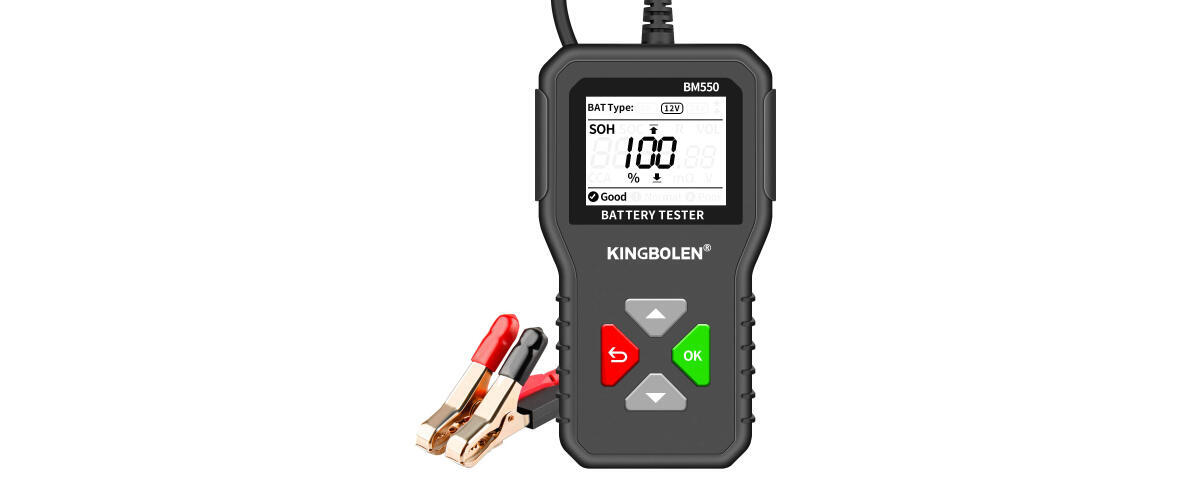

Here's a car battery tester that not only gives accurate details about your battery but also comes with reverse connection protection. This feature ensures that your tester does not work if you accidentally reverse the wires, preventing the internal circuit from burning. With its wide voltage testing range of 6V, 12V, and 24V, this battery tester is suitable for cars, trucks, SUVs, ATVs, boats, motorcycles, and other vehicles. The internal resistance testing feature is another huge plus, as it allows you to assess the overall health of your battery. Additionally, the digital display is easy to read, even in bright sunlight, and the compact size makes it convenient to carry around.
Pros
Multiple voltage testing, Wide range of application, Quickly and accurately displays battery status
Cons
Clip positioning can be finicky

4 . Neiko Car Battery Tester
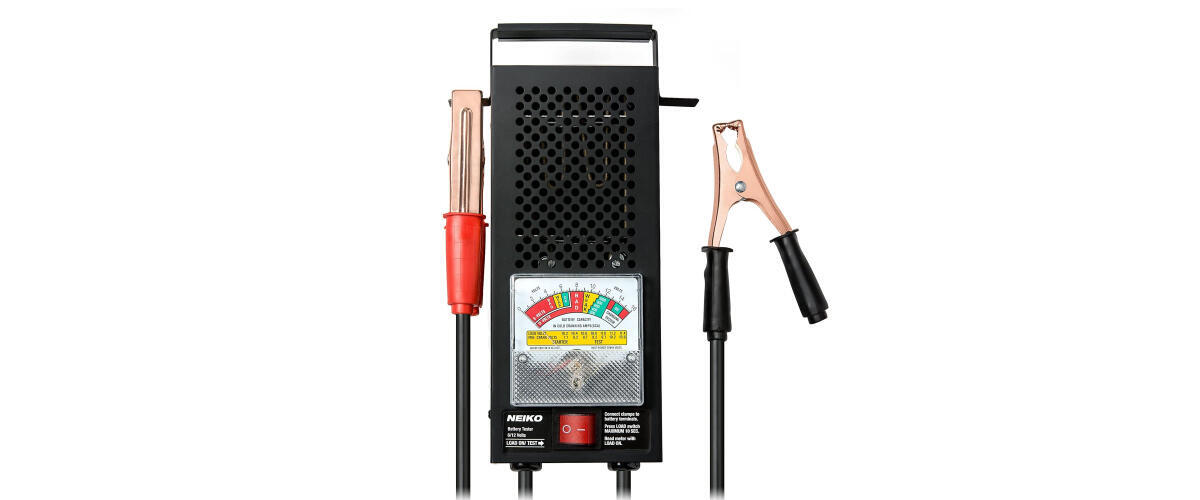

This next car battery tester has a 100 AMP capacity and can handle both 6—and 12-volt batteries, making it ideal for any automotive application. It precisely analyzes your battery's Cold Cranking Amps (Cion). It also features an easy-to-read LCD, which is a huge plus when working in dimly lit areas. This tester is your go-to if you're looking for a device that strikes the ideal balance between affordability and functionality.
Pros
Safety features, Secure hold, Dual voltage capability
Cons
Overheats with multiple battery tests

5 . Autder Car Battery Tester
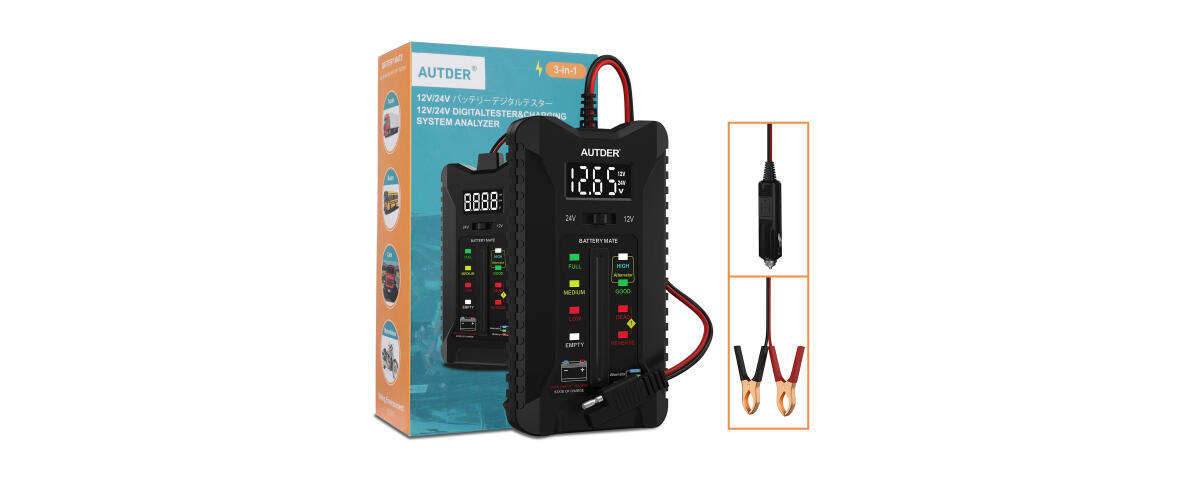

If you’re looking for an affordable and easy-to-use car battery tester that can give accurate details about your car battery, this is the best option. The LCD display and LED indication provide clear and accurate readings, allowing you to easily monitor the voltage of your battery. It accurately measures the battery condition and alternator charging system performance. Additionally, we loved how it features a voltage indicator, which is a huge plus for quickly identifying any issues with your battery.
Pros
Versatile (12V/24V), Easy to read display, LED indication for accuracy
Cons
Clamps may be flimsy

6 . Topdon Car Battery Tester
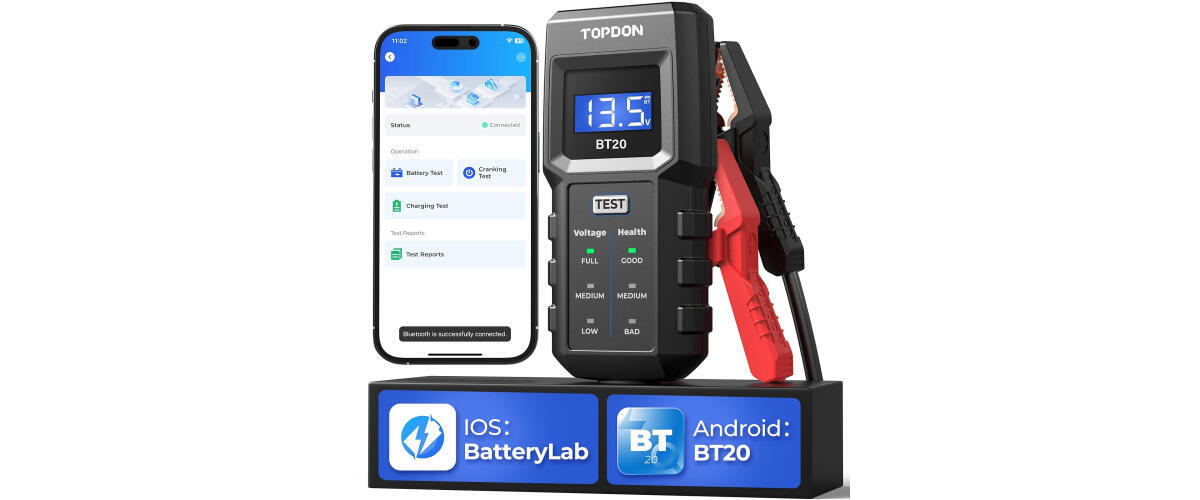

The best thing about this car battery tester is that you can connect it to your smartphone via an app that allows you to easily record voltage history and access real-time test results. Plus, it tests batteries with a wide range of Cold Cranking Amps (CCA), from 100 to 2000. Additionally, it can perform both cranking and charging tests, giving you a comprehensive analysis of your battery's health. This device is compact and portable, making it ideal for on-the-go use.
Pros
Accurate testing results, Easy to use with app, Records voltage history
Cons
App required for some features

7 . Ancel Car Battery Tester
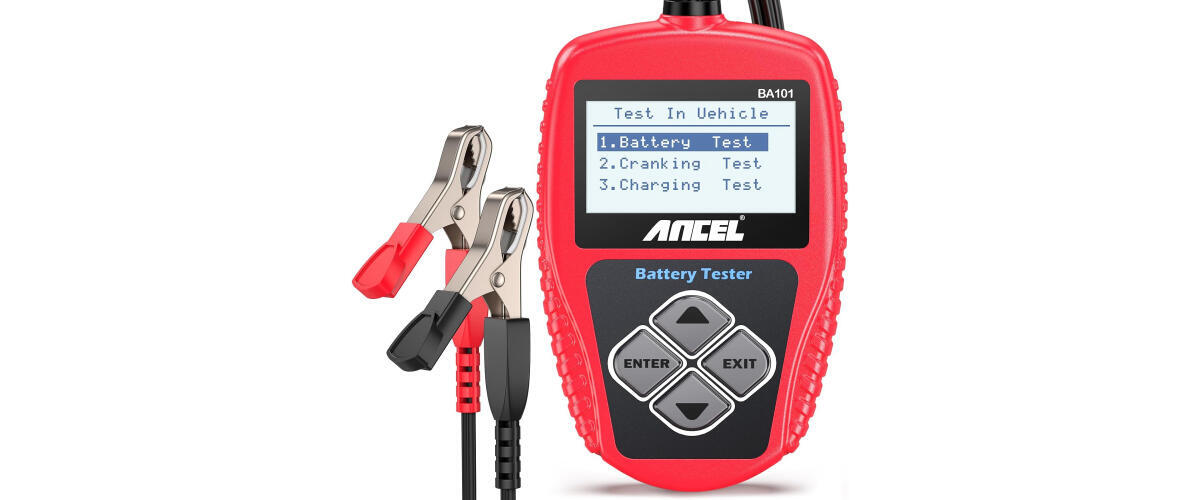

This car battery tester falls on the higher end of the price range, but it comes with features that truly make it a standout option for car owners. With its digital display and advanced diagnostic capabilities, this automotive tool is designed to make battery and alternator testing a breeze. It provides comprehensive charging and cranking analysis, giving you valuable insights into the health and performance of your battery and alternator. It is very easy to use and generates accurate results every time you check your battery.
Pros
Easy to use, Accurate results, Versatile compatibility
Cons
Relatively expensive

FAQ
Q: How often should I test a car battery tester?
A: Testing your car battery is crucial for preventing unexpected breakdowns. How often you should do it depends on a few factors. Generally, it's a good idea to test your battery every few months, especially if your car is older or if you've had issues before. However, if you mainly use your vehicle for short trips or live in extreme weather conditions, you might want to test it more frequently, maybe every month. Essentially, the more you rely on your car, the more often you should check your battery. It's all about staying proactive and avoiding those inconvenient surprises on the road!
Q: Can a car battery tester test different types of batteries?
A: Many car battery testers are versatile and can test various types of batteries, not just car batteries. They're designed to assess the health and performance of different battery types commonly found in vehicles, such as lead-acid, AGM (Absorbent Glass Mat), and gel batteries. Some advanced testers can even handle lithium-ion batteries, which are becoming more prevalent in hybrid and electric vehicles. However, it's essential to check the specifications of the specific battery tester to ensure compatibility with the battery types you intend to test. Always refer to the manufacturer's guidelines to determine the tester's capabilities before use.
Q: How long does testing with a car battery tester take?
A: The time it takes to test a car battery with a tester can vary depending on the specific tester model and its features. Generally, the process is relatively quick and typically takes only a few seconds to a few minutes. Basic testers that measure voltage may provide results almost instantly, while more advanced testers that assess battery health and conduct comprehensive diagnostics might take slightly longer. However, even with these advanced testers, the entire testing process usually doesn't exceed a few minutes. It's a quick and convenient way to ensure your battery is in good condition without causing any significant delays in your day.
Q: Can a car battery tester diagnose other vehicle electrical problems?
A: While car battery testers primarily focus on assessing the health and performance of the battery itself, some advanced models can offer insights into other vehicle electrical problems. These testers may have additional features like voltage drop testing, alternator testing, and starter system analysis. By evaluating these components, they can help identify issues like charging system problems or faulty connections that may affect the overall performance of your vehicle. However, it's essential to note that while these testers can provide valuable diagnostic information, they may not cover all possible electrical issues, and certain problems may require further inspection by a professional mechanic.
Q: What are the common signs that indicate a failing car battery?
A: Several common signs indicate a failing car battery. One of the most noticeable signs is difficulty starting the engine, often manifesting as slow cranking or clicking sounds when you turn the key. Dim headlights and interior lights, despite a fully charged battery, suggest power depletion. Another indicator is electrical issues like malfunctioning accessories or erratic behavior in electronic components. A sulfurous smell near the battery could signal internal damage or leakage. Additionally, a visibly swollen or corroded battery casing indicates a problem. Lastly, if your battery is old or has surpassed its expected lifespan, it's prudent to monitor for these signs and consider a replacement if observed.
Article Contributors
Jessica Schoeman
From dance floors to mountain trails, Jessica finds inspiration in life's adventures. When not whipping up culinary delights, she's tending to her garden, sewing fashion-forward creations, or exploring the great outdoors with her pets.
These product recommendations are designed to help you pick the best product for your needs.
First published: 19:19, 22.02.24














